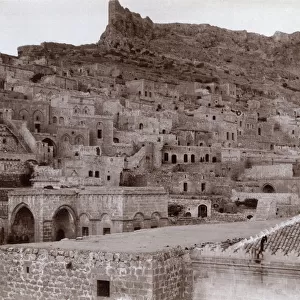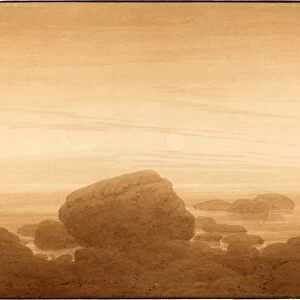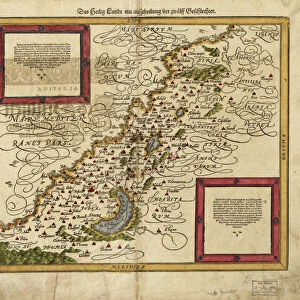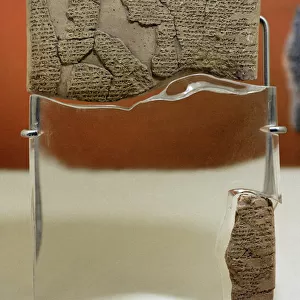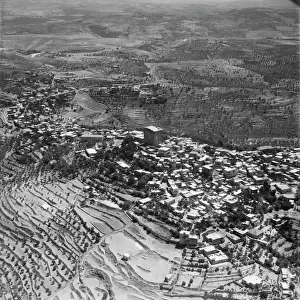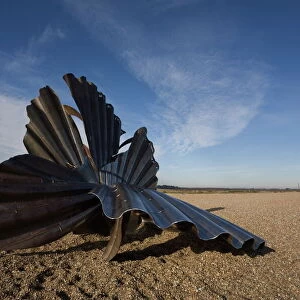Home > Arts > Artists > H > Hittite Hittite
Priest-King or Deity, c. 1600 BC. Creator: Unknown
![]()

Wall Art and Photo Gifts from Heritage Images
Priest-King or Deity, c. 1600 BC. Creator: Unknown
Priest-King or Deity, c. 1600 BC. The Hittites migrated into Anatolia in the 3rd millennium BC and spoke an Indo-European language, a group that includes Greek, Latin, Persian, Sanskrit, English, and most modern European languages. They were the first ancient people to use iron for weapons. From about 1600-1200 BC their empire was at its peak, extending from central Anatolia to Syria, and south along the eastern Mediterranean. Their vast empire and interest in commerce enabled the Hittites to spread Mesopotamian ideas and culture throughout the ancient Mediterranean world. This large basalt sculpture is exceptionally rare in depicting a Hittite god or priest-king wearing a horned conical crown, false beard, and long robe. He holds a bowl in his right hand and once held something in his left, perhaps a staff or sword
Heritage Images features heritage image collections
Media ID 19642191
© Heritage Art/Heritage Images
FEATURES IN THESE COLLECTIONS
> Arts
> Artists
> H
> Hittite Hittite
> Arts
> Artists
> S
> Syrian Syrian
> Arts
> Contemporary art
> Modern art
> Sculpture
> Arts
> Contemporary art
> Sculpture
> Modern art
> Asia
> Syria
> Related Images
> Europe
> Greece
> Sculptures
> Europe
> United Kingdom
> England
> Cleveland
EDITORS COMMENTS
This print showcases a remarkable piece of ancient art, the "Priest-King or Deity" sculpture, created around 1600 BC by an unknown artist. The Hittites, who migrated into Anatolia during the 3rd millennium BC and spoke an Indo-European language, were pioneers in using iron for weapons and established a vast empire from central Anatolia to Syria and along the eastern Mediterranean between 1600-1200 BC. What makes this basalt sculpture truly exceptional is its depiction of a Hittite god or priest-king adorned with distinctive features. The figure wears a horned conical crown, suggesting divine status, while sporting a false beard and long robe. In his right hand rests a bowl, symbolizing ritualistic practices that were integral to Hittite religious beliefs. Although it is now missing from his left hand, it likely held either a staff or sword - objects associated with power and authority. The rarity of this artwork lies not only in its subject matter but also in its material composition. Crafted from basalt with bone eyes carefully inserted into their sockets, this sculpture represents the artistic mastery achieved during the early 17th century BC. Preserved at The Cleveland Museum of Art today after being restored over time, this mesmerizing artifact serves as evidence of how the Hittites' expansive empire facilitated cultural exchange throughout the ancient Mediterranean world. Its presence invites us to delve deeper into understanding these enigmatic people who left an indelible mark on history through their achievements in warfare and commerce alike.
MADE IN AUSTRALIA
Safe Shipping with 30 Day Money Back Guarantee
FREE PERSONALISATION*
We are proud to offer a range of customisation features including Personalised Captions, Color Filters and Picture Zoom Tools
SECURE PAYMENTS
We happily accept a wide range of payment options so you can pay for the things you need in the way that is most convenient for you
* Options may vary by product and licensing agreement. Zoomed Pictures can be adjusted in the Cart.



